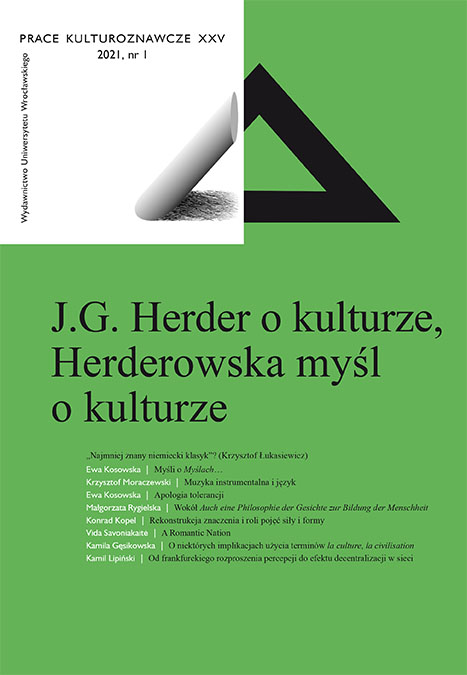

Herder on culture

The author organises the thoughts on European and non-European cultures contained in Herder’s work. According to the philosopher, a man endowed with free will, able to act independently and pass his experiences to the next generations, plays a key role in the divine plan of creation. That is why human history is determined by upbringing and tradition, differing in various parts of the world. In the process of hominization, articulated speech was of great importance, as it enabled socialisation and culturalisation in all conditions. However, the emergence of writing privileged some cultures and gave rise to civilisation. Europeans, who could benefit from other people’s written experiences, gained knowledge faster and considered it the basis for their own superiority. But the individual deprived of the support of civilisation is still defenceless against the challenges of nature. Therefore, Herder advocates respect for all cultures. His apology of tolerance precedes the twentieth-century anthropological postulate of cultural relativism.